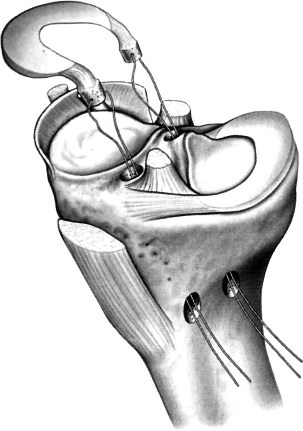





Meniscus allograft survival in Patients with moderate to severe Unicompartmental arthritis:a 2- to 7-year follow-up.
Arthroscopy. 2006 May;22(5):469-78.
Stone KR1, Walgenbach AW, Turek TJ, Freyer A, Hill MD.
1Stone Research Foundation, San Francisco, California, USA.
Abstract
PURPOSE:
We present meniscus allograft survival data at least 2 years from surgery for 45 patients (47 allografts) with significant arthrosis to determine if the meniscus can survive in an arthritic joint. Type of Study: Prospective, longitudinal survival study.
METHODS:
Data were collected for 31 men and 14 women, mean age 48 years (range, 14 to 69 years), with preoperative evidence of significant arthrosis and an Outerbridge classification greater than II. Failure is established by previous studies as allograft removal. No patient was lost to follow-up.
RESULTS:
The success rate was 42 of 47 allografts (89.4%) with a mean failure time of 4.4 years as assessed by Kaplan-Meier survival analysis. Statistical power is greater than 0.9, with alpha = 0.05 and N = 47. There was significant mean improvement in preoperative versus postoperative self-reported measures of pain, activity, and functioning, with P = .001, P = .004, and P = .001, respectively, as assessed by a Wilcoxon rank-sum test with P = .05.
CONCLUSIONS:
Meniscus allografts can survive in a joint with arthrosis, challenging the contraindications of age and arthrosis severity. These results compare favorably with those in previous reports of meniscus allograft survival in patients without arthrosis.
LEVEL OF EVIDENCE:
Level IV.



 留言列表
留言列表
